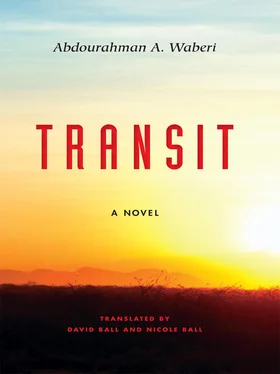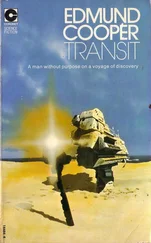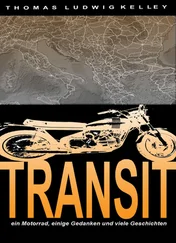Stay on your own side of the river, and above all never throw oil on the fire, never arouse the right-wing crowds of the colony and pet the muzzle of Lucifer. At first, we managed to avoid the cold kiss of killing steel by keeping ourselves at a respectful distance from the authorities. But as one might expect — and perhaps we nourished some illusions in this respect — your father received a cool welcome from his family, and even from some of his friends who had recently returned to the fold. The time was not ripe for mixed-race love or mixed flavors in this erratic country, this womb so fertile it cannot keep its children unless it uses a straitjacket and holds them in neurotic silence.
When we landed we were dreaming of a world in which people looked each other straight in the eye and spoke to each other like human beings, a world where people spoke man to man the way South Americans address each other— Hombre! — with no distinctions of class, race, or nationality. Alas, this country and its sun drove me mad. Their way of living in apnea infuriated me. Always waiting, spying on the neighbor's breathing, the cousin's breathing, the breathing of the man who came back from Ethiopia that summer or the woman who just found a meaningless administrative job at the Fisheries through her relatives. Waiting. Waiting. I could have written a whole notebook of his return to the country of his ancestors as I waited.
But there were also things more serious than my petty bouts of melancholy; what's more, you know me, I'm not a poetess of the tropics, you can see that straightaway, right? Sure, they'd warned me, but really, as long as you haven't lived through something yourself it's a waste of time. As long as you haven't felt the tough, concrete reality in your own flesh it doesn't amount to a row of beans. Ali Aref's henchmen kept the little colony in a state of permanent terror as if their political mentors were Dr. Malan and the farmer Ian Smith, respectively the brain behind apartheid in South Africa and the strong man of the future Zimbabwe, then called Southern Rhodesia after the name of the British explorer and builder but nonetheless exterminator Cecil Rhodes. On the map of Africa, only Djibouti — besides Rhodesia and Pretoria — was still living under the colonial yoke. I'm sorry, my little cactus, if I'm giving you so many political examples that are not from your time. It's to better render the sound and fury of that period, nauseating and explosive all at once, and then I felt terrible when they associated me with the last little bunch of colonists just because I was French. In fact, I was a walking disgrace; maybe you'll understand that some day. An animal with horns avoided by your father's so-called friends. I couldn't have cared less about their distrust, aside from the fact that all around us the atmosphere was insurrectional. The lower city was untenable even if the Foreign Legion held the main roads and intersections from the end of the afternoon on. On the Richter scale of fear, our world had toppled into eruptive, telluric panic. A world the color of meat and blood. Of poverty, too: never had I seen so many begging hands at every bus stop, so many malnourished children as there were the month after we arrived. It's because of the famine in Ethiopia, said the propaganda. And a world of bling and lucre, where, at noon prayer on Fridays, we could already see crowds of suvs, exhibited as zebus once were in times gone by.
Ali Aref and his supporters had done all they could to sort people out, and anathema and exclusion were the rule. Your membership in a tribe, or more precisely a clan, contrary to the common appellation, was stamped on your identity card, and, as if that weren't enough, they invented a new population category, decreed non-native on the pretext that they were supposed to be from Somalia. Non-natives and nomads of the inner country had to go through the Balbala checkpoint to get here, to the capital. This checkpoint was a miniature Berlin Wall. One word too many and you'd be accused of sabotage on the spot, handcuffed, shackled, and brought to the Service du Fichier, the data agency behind the only high school in the colony — attended mainly by children of expats, let me say in passing. You had two solutions: confess all the sins of Israel and you had a very slight chance of being released, broken but alive, intellectually annihilated but still hanging onto life by the guardrail. You would return home, but it was an open secret that you'd been turned; appointed by the secret services and their slave forever, you'd be constantly on edge now: you'd take to your heels at the sight of a dead caterpillar. The other solution: you had nothing to confess, had committed no crime, and your corpse would be carried by the tide between Haramouss and Loyada or, at two cable-lengths from town, between the slaughterhouses and Boulaos, half-decapitated by a shark, twisting in a net of seaweed, your skin eaten away by salt and the sun of the Last Judgment as an eyewitness. Of course there were a few exceptions, widely bruited about and held up as examples to hail the kind indulgence of the white chief. Again and again they told of the case of such-and-such, a young man from a good family led into the temptation of rebellion, the harmful influence of friends quickly detected, the virus eradicated, the young man miraculously saved from deadly waters, God recognizing his own, God always works in mysterious ways with resurrection at the end of the road, blah-blah-blah, once he was put on the straight and narrow the young man was sent off to study in France with a scholarship awarded by the Territory like that Vic Lebleu and his silly nickname.
Despite battalions of paid informers, the wrath of the people never ceased to explode during the two decades of the Aref regime. The people found a way to express itself creatively, each link in the chain doing its job; with no clear leader, the results were obvious nonetheless: now the people was building barricades in poor neighborhoods, driving the Legionnaires away with stones, occupying Gabode prison, derailing trains, boycotting French products and schools, and refusing to pay taxes of all kinds, as in August 1966. Everything would suddenly calm down for a while, and then, without advance notice, start up again with renewed vigor. The staccato drone of helicopters grazing the rooftops and the heads of the demonstrators, the suffocating smell of tear gas, the neighborhoods locked down, the main roads blocked, the headquarters of the labor unions sacked, the arbitrary arrests, lashes of whips, pointless humiliations, expulsions from the country, the corpses of activists on the sidewalks — everything was catching fire again. Then back to calm. The cycle of struggles would begin its rounds again elsewhere, tomorrow, based on spontaneous anger, underground activism, the slogans of poets and singers, the ruses of the multitude — the thousand-and-one faces of solidarity. The multitude is the old woman who carries in water to soothe eyes smarting from the gas; it is the women who gather stones and give them to the men and to the children who have taken the vanguard— mater dolorosas and amazons all at once. The multitude is the muezzin who calls for insubordination and at the same time for prayer and return to the bosom of God. The multitude is the rage of the rebels, most often adolescents, confronting forces stronger than they are, biting the dust and getting up again to charge the enemy. The multitude is repetition, too. Starting again, always. Resistance and desire are present in every moment of life. Raising an old bush song to rally, relay, reconnect, wake sleeping energy, shake the genealogical tree. The old underground laws show the tip of their nose. Raids, razzias, fantasias, vendettas, last-ditch stands, everything that could frighten the good organization of the colony. Depriving the high commissioner of sleep, and his local native, too. Telling the outside world, seeking out potential allies in the enemy camp. It is impossible for the police to contain the movement, its life, its protuberances, its transformations, its desires and its new needs, which come from afar, from very far. Silence, exile, and cunning. Crossing and re-crossing borders that make no sense for anyone; a surge of nomadic life, mobility, cooperation, exchange, sharing, the power to annoy. “Irredentism, irredentism,” shouted the head of the high commissioner's cabinet. No matter.
Читать дальше












